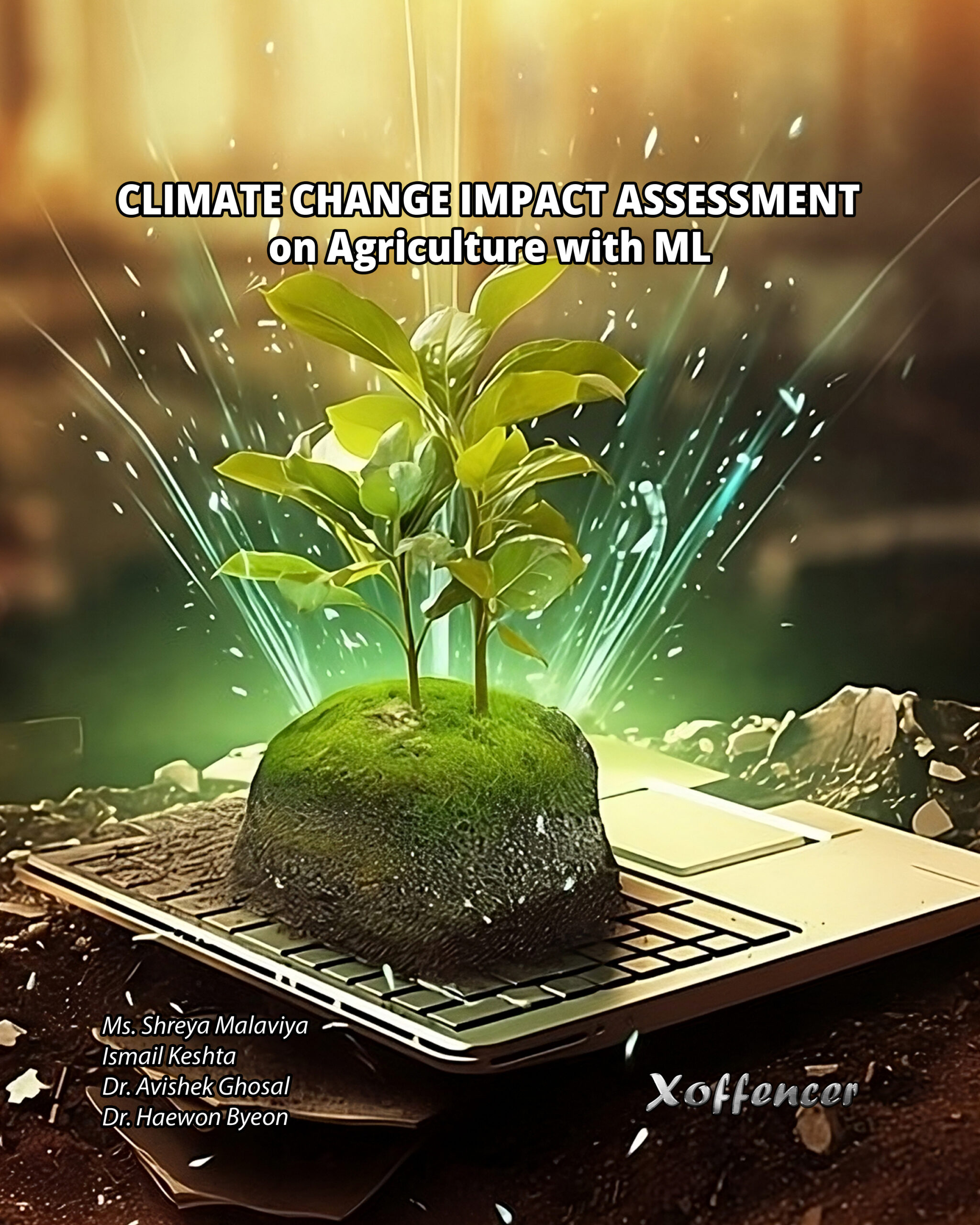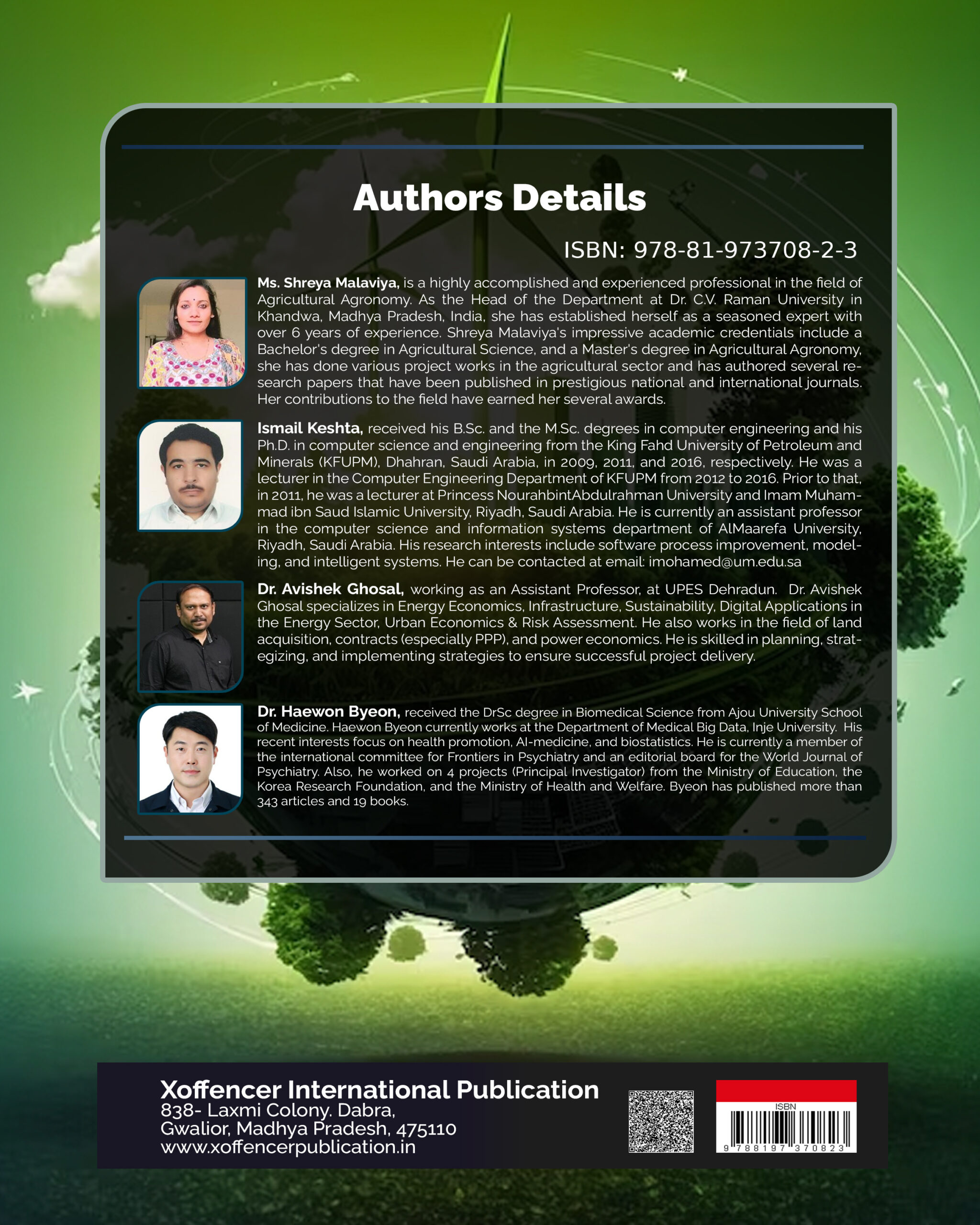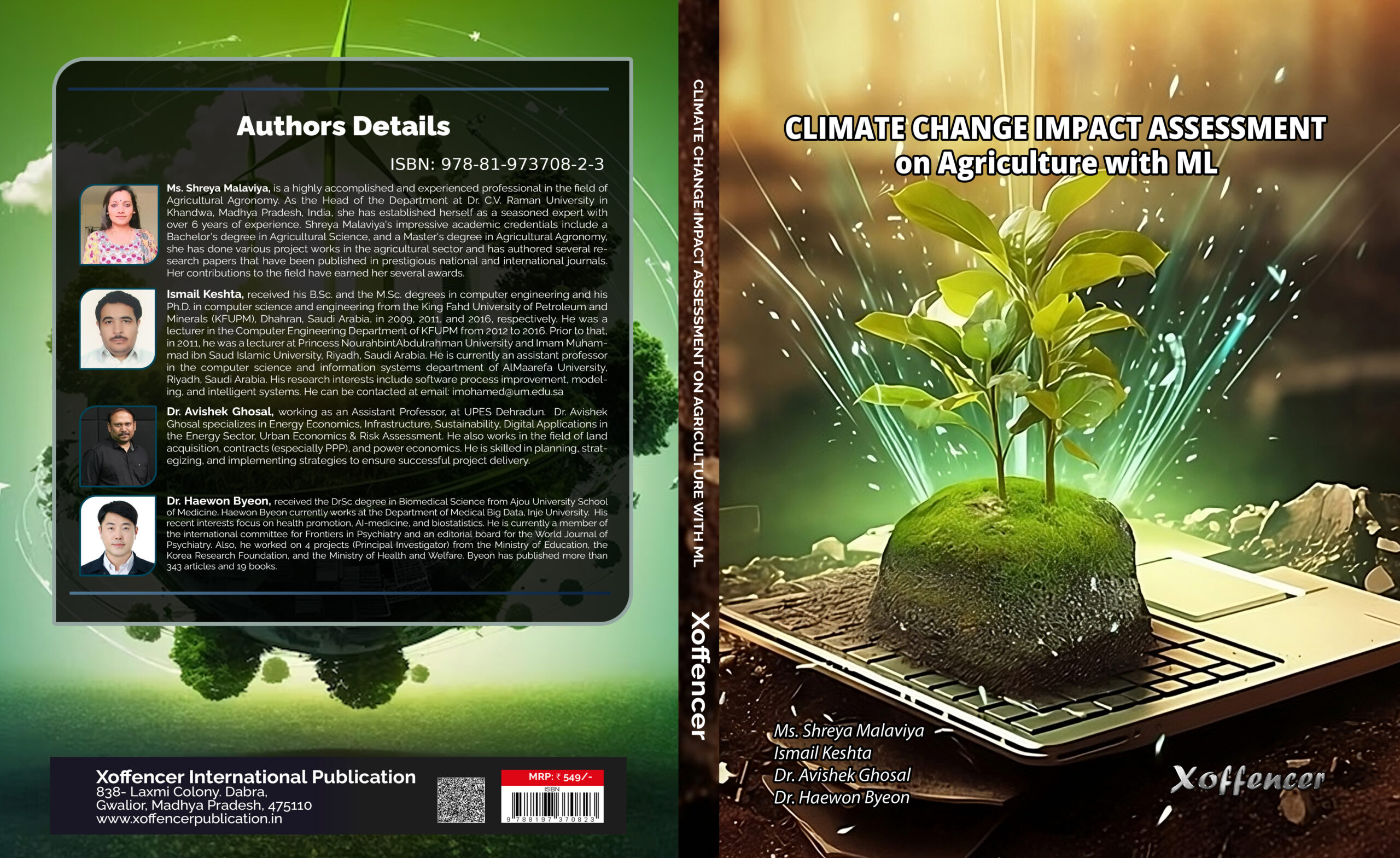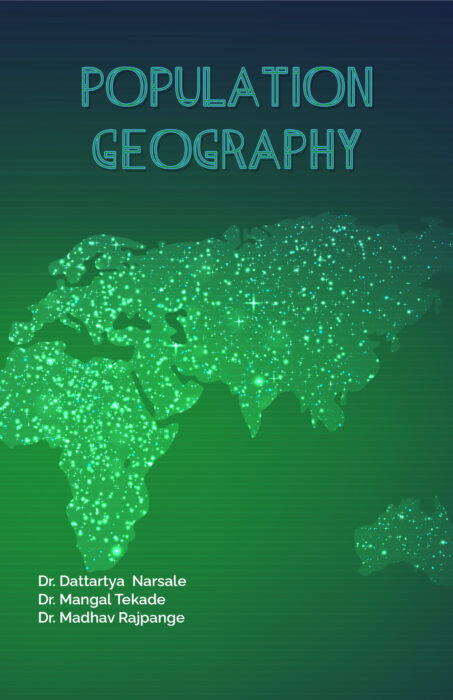Description
Agriculture around the world faces enormous problems as a result of climate change, which calls for the implementation of efficient impact assessment procedures in order to facilitate informed decision-making and adaptation strategies. Within the scope of this investigation, we make use of machine learning (ML) methodologies in order to evaluate the effects that climate change has on agricultural systems. Machine learning algorithms provide powerful tools for assessing complicated information and predicting future trends. As a result, these algorithms are ideally suited for evaluating the complex connections that exist between climatic variables and agricultural outputs. Our strategy entails incorporating historical climate data, agricultural productivity measurements, and other pertinent parameters into machine learning models for the purpose of conducting predictive analysis. Through the process of training these models on historical climate-agriculture correlations, we are able to extrapolate future implications under a variety of different climate change scenarios. The identification of sensitive regions, crops, and farming techniques is made possible as a result of this, which enables targeted efforts to be made toward adaptation and mitigation. Through the utilization of machine learning, our objective is to improve the precision and specificity of the impact assessments that climate change has on agricultural practices. In the process of identifying subtle patterns and nonlinear relationships within the data, machine learning algorithms have the potential to provide insights that conventional statistical methods could miss. In addition, the scalability and adaptability of machine learning models make it possible for them to be applied over a wide range of geographical and temporal scales, which guarantees reliable evaluations in a variety of settings. In general, the findings of our research highlight the potential of machine learning to be used in enhancing research on climate change and guiding evidence-based policy for sustainable agriculture. In order to protect food security and livelihoods in the face of a changing climate, stakeholders can better anticipate and mitigate the harmful effects of climate change on agricultural productivity by harnessing the predictive capabilities of machine learning (ML).













Reviews
There are no reviews yet.